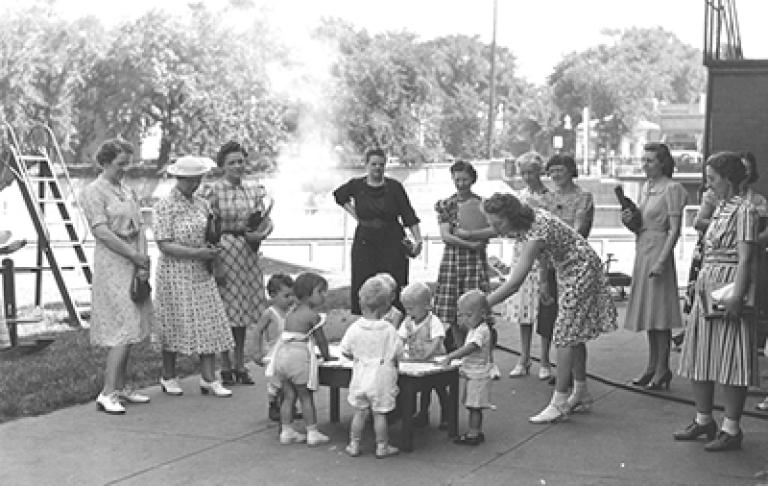About ICD
Since 1925, the Institute of Child Development (ICD) has conducted research, training, and outreach that has guided policymakers, educators, practitioners, and parents across Minnesota and the nation as they cultivate the next generation of citizens.
ICD has consistently ranked as the #1 developmental psychology program in the nation by U.S. News and World Report and is internationally recognized for the quality of its faculty and their portfolios of research.
In addition to its academic programs, ICD is also home to the Child Development Laboratory School (CDLS) and the Center for Early Education and Development (CEED). The CDLS offers a full-day, year-round early childhood education program for students, staff, and faculty affiliated with the University of Minnesota (U of M) and a part-day preschool program that is available to all families throughout the Twin Cities. It also provides training for ICD’s early childhood education students and serves as a living laboratory for curriculum development in collaboration with ICD faculty members.
CEED, which was founded in 1975, acts as ICD's community outreach arm. CEED provides professional development and training to early education professionals, so they can achieve the best outcomes for the children they serve in their own communities.
Historical Highlights
- Our instructional program in developmental psychology dates from 1925-1926. The first undergraduate and graduate courses were offered by John E. Anderson and Florence L. Goodenough.
- We awarded our first PhD degrees in 1928 to Dorothea McCarthy and Esther McGinnis.
- We have the distinction of granting the first-ever PhD in any field of psychology to an African-American female, Dr. Ruth Winifred Howard, in 1934.
- By 2012, more than 425 doctorates had been earned in developmental psychology, with more than two-thirds completed since 1973.

Children playing at the Institute of Child Development (circa 1940's)

Mission
We strive to be a catalyst for improving lives beginning in childhood. Our mission is to:
- advance knowledge about human development through research and scholarly activities;
- promote the optimal development of all children and youth;
- prepare students to pursue careers in science- and early education-related fields; and
- collaborate with community partners to implement science that improves lives.
Our academic and research programs, our lab school, and CEED work together to support the University of Minnesota’s land grant mission of research and discovery, teaching and learning, and outreach and public service.